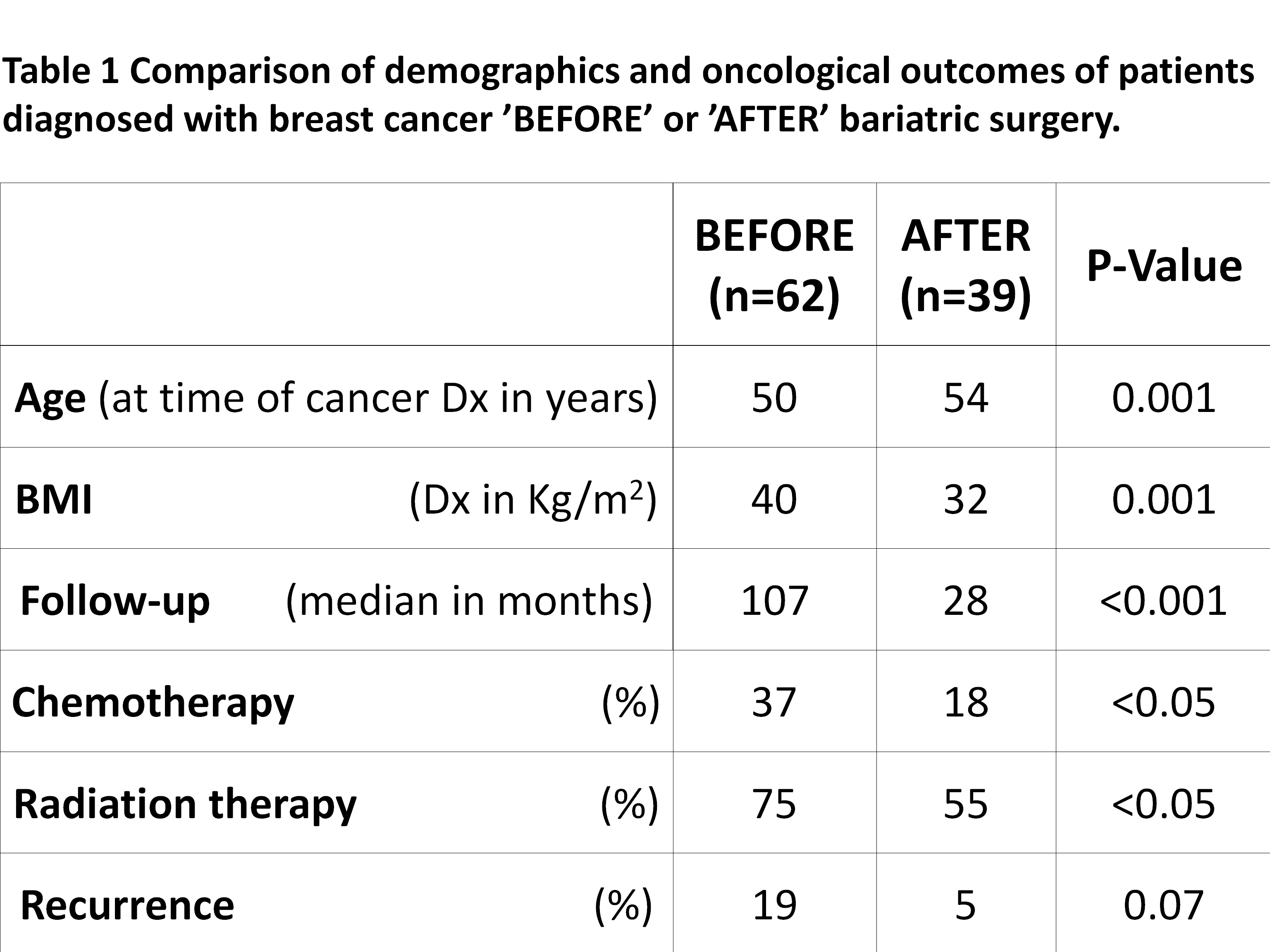A. Ardestani1, E. Pranckevicius1, M. Golshan1, A. Tavakkoli1, E. Sheu1 1Brigham And Women’s Hospital,Department Of Surgery/ General/GI Division,Boston, MA, USA
Introduction: Obesity is an established risk factor for breast cancer and is thought to adversely affect outcomes. The impact of significant and sustained weight loss as achieved by bariatric surgery on breast cancer is not well understood.
Methods: We performed an institutional retrospective review of patients who underwent bariatric surgery and were diagnosed with malignant breast disease from 1989–2014. We compared patient demographics, tumor characteristics, and surgical and adjuvant treatments in patients diagnosed with breast cancer before (‘BEFORE’ group) or after (‘AFTER’ group) undergoing bariatric surgery.
Results: We included 101 patients, 62 and 39 patients in the BEFORE and AFTER groups, respectively. Patients in the BEFORE group were younger and more obese (Table 1). No significant differences were observed in tumor pathology in the BEFORE and AFTER groups including tumor size, hormone receptor status or lymphovascular invasion. Surgical outcomes were also similar between the groups including the rates of axillary dissection, positive margin, and peri-operative complications. However, a higher proportion of patients in the BEFORE were treated with chemotherapy and radiation therapy (Table 1). Of note, hormonal therapy was similar between the groups (63% vs. 47%, P=0.14). There was also a trend for higher recurrence in the BEFORE group.
Conclusions: This study represents one of the largest studies of breast cancer outcomes in bariatric surgery patients. Despite significant weight loss, bariatric surgery has no impact on tumor stage at diagnosis or hormone receptor status. Bariatric surgery appears to decrease the need for re-excisions, chemotherapy, and radiation therapy without a negative impact on breast cancer recurrence.
